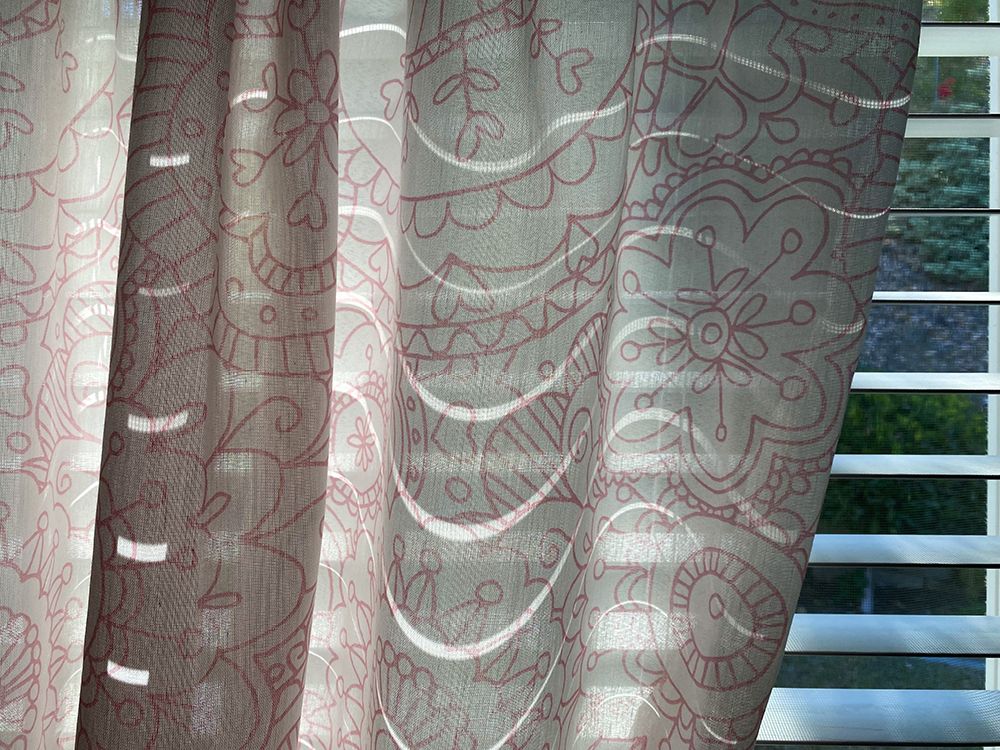New KTCO: Jennifer Baker
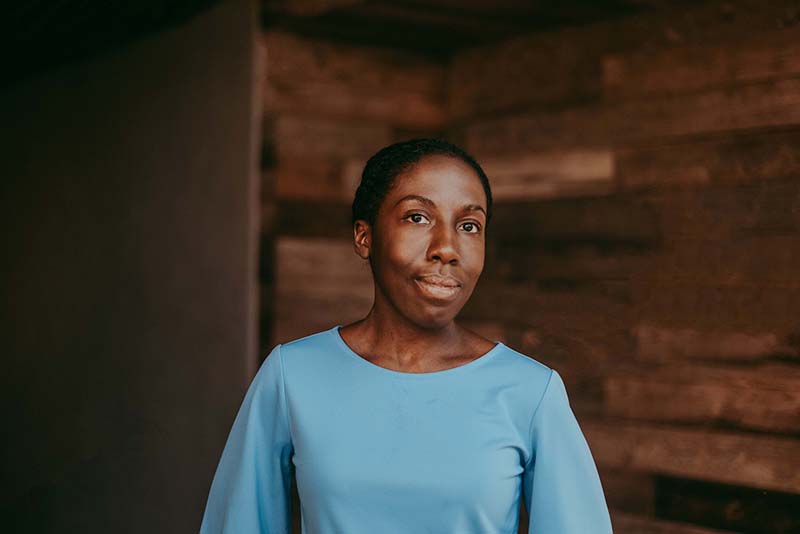
Jennifer Baker has been one of the people I’ve looked up to for a while as a model of literary citizenship, so when I heard that she had a YA novel coming out, I immediately pre-ordered it. Forgive Me Not is a powerful and insightful book about the American carceral system, as well as a moving coming-of-age and family story.
The story follows Violetta Chen-Samuels, a high school student in New York City whose life has gone off the rails, culminating in the death of her younger sister in a drunk driving accident that Violetta caused. In this version of New York, juvenile offenders are given the option of enduring Trials—a sort of codified form of “tough love”—instead of incarceration. But despite being intended as a reform of the criminal justice system, the Trials, too, are harsh and retributive. Forgive Me Not delves into the harms of our carceral system, and how race, class, gender, and other systems of marginalization interact with it, and ultimately the question of forgiveness and punishment.
Jennifer and I had a great conversation about how she approached writing her characters, why it was important for her to focus on systems rather than individual guilt or innocence, and how to write about serious topics for younger readers.
Hey, Its Me: Episodes 4 and 5
Rachel and I are trying to commit to a two-episode-per-month schedule for Hey, It’s Me, and so far it’s going pretty well. For our first episode in August, I asked to talk about Star Trek, and particularly what it was about the more recent series that didn’t really feel like Star Trek to me, even though I have been enjoying them. As always, we wandered a bit far afield from that premise, to conversational spots including Star Trek as personal foundational text, cozy fiction, optimism vs. hope, and the cultural role of motherhood.
For our second episode, Rachel sent me the first section of her novel-in-progress so that we could discuss it. If you’ve been listening along, you’ll have heard us mention the novel a few times before, but one piece of context that might not have gotten mentioned is that the book’s main character is named Rachel Zucker, and another major character is named Mike and talks exactly like me. As many of our episodes do, this one does get a bit meta. But I think that there’s also some really interesting discussion about the art-making process, not to mention that the dynamic between two friends trying to talk around and into a sort of challenging topic. I am really interested to know how this episode in particular strikes listeners.
July 2024 Featured Read: The Saint of Bright Doors, by Vajra Chandrasekera
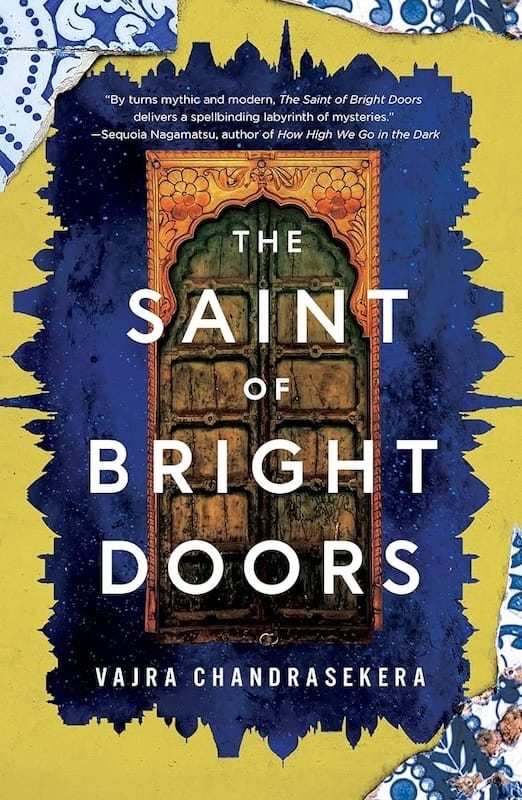
It’s a fun bit of serendipity that I read this book shortly after reading Molly Templeton’s essay about the joy of reading books you don’t entirely understand, which itself referenced Chandrasekera’s second novel, Rakesfall. I do find myself wanting to talk to someone smarter than me about this book, not because I found the book difficult but rather because I find myself unable to articulate why and how this book affected me.
How can I describe this book? It’s a second-world fantasy that is set in a country that reads as South Asian to me, in a time period roughly equivalent to the present day. The main character has been raised by his mother to assassinate his father, a religious leader who has ascended to a sort of semi-divinity. The story feels sort of Borgesian in the way it presents a world where magic and mundanity coexist, where history is not what it seems. And it does some interesting things with point-of-view, that I suppose I could call somewhat postmodern but which feel epic rather than clever.
It is, I suppose, a sort of bildungsroman. I think it is also an allegory or commentary on political violence, especially as seen in present-day South Asia—though, I have to admit that I’m not familiar enough with South Asian politics to know for sure. And perhaps “allegory” is the wrong word. Maybe it’s more accurate to say that there is resonance with our real-world situation. Or that this portion of the story seems to be inspired by real-world events.
But none of that really gives you a great idea of what reading this book is like. I want to put it on the same shelf as Sofia Samatar’s Olondria novels and Susanna Clark’s Piranesi, which are not much like each other and really not much like this book in terms of what they’re about or the details of their worlds. But there is something about the way all of these books operate in the spaces and traditions of both speculative fiction and literary fiction that puts them next to each other in my mind.
If any of you have any thoughts about this book, I would dearly love to hear them. In the meantime, here are some purchase links:
Was/Will Be
I’ve been thinking a lot lately about narrative, about the stories we tell ourselves about ourselves. The other night, my girlfriend and I were talking about my kids, and she asked whether I primarily thought of myself as a dad. I thought about it for a moment, and realized that I don’t think I really have a primary identity right now.
There are a lot of ways that I’ve described myself over the years, a lot of roles that I’ve inhabited. My bio on most social media platforms says something like “writer, photographer, and podcaster,” and those are certainly all ways that I think of myself. I am also a father, yes, and a son. A brother, a cousin, a grandson, a nephew, a friend. I used to call myself an activist, and more recently have been calling myself a former activist, and perhaps in the not-too-distant future I’ll just be an activist again. But the way I mainly understood myself for most of my life was as a husband. All of those other things were true of me, but they all took a back seat in one way or another to being my then-wife’s partner. I haven’t been a husband for more than three years now, but I’m realizing that a lot of the discontent and the strange floating feeling I’ve been having is due to the fact that the way I think of myself hasn’t stabilized yet.
Realistically, none of us actually has a single authentic self, because there is neither a single self (at any given moment, many different facets of our being exist and conflict and surface and recede simultaneously) nor a stable self (while we live, we are always changing). The idea of a central, unifying identity is just a story we tell ourselves. And yet, I say “just,” but stories are real and powerful even if they are imaginary, no? Having a stable story about yourself makes it easier to find meaning and purpose, to know why you do the things you do. And it’s understandable that lacking that story would be unsettling.
It’s strange to still be figuring all this stuff out, three years on. But then, I suspect that you never really stop having to learn and re-learn. I don’t know what it would take to find something new to hang my sense of self on, nor what it would look like. Maybe that’s not something that’s going to happen, at least not in the same way. Maybe that’s okay.
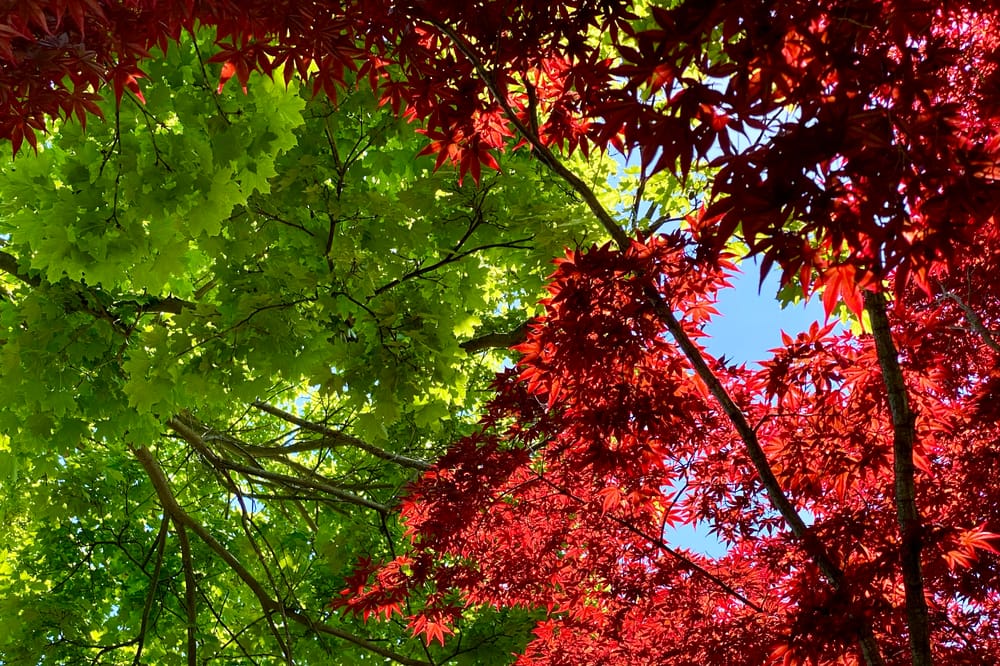
New KTCO: Rachel Lyon
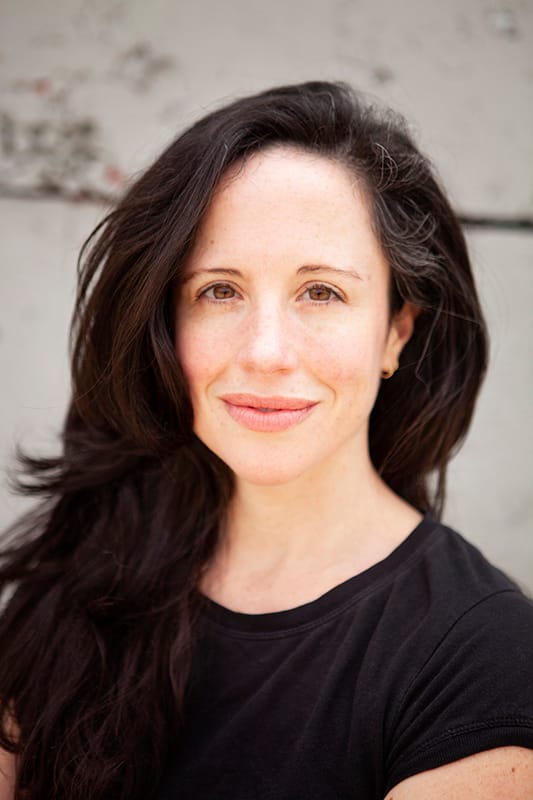
I’m pleased to welcome writer Rachel Lyon back to KTCO for a conversation about her latest novel, Fruit of the Dead. It’s a compelling and (I thought) chilling contemporary retelling of the Persephone myth, told from the perspectives of Cory, a young woman seduced by extreme wealth and privilege, and Cory’s mother, Emer, who has to go looking for Cory after she seemingly disappears one day. The story is about addiction and sexual assault, about power and class, about mothers and daughters, and about what it means to have agency and to come of age. I thought it was incredible.
Hey, It's Me
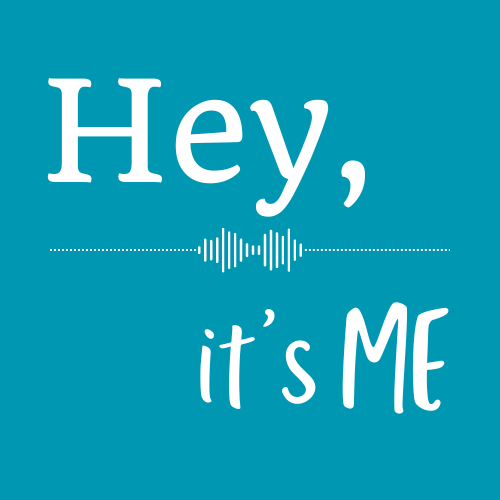
My friend Rachel Zucker and I launched a new podcast this month, called Hey, It’s Me. As longtime listeners to Keep the Channel Open may know, both Rachel and I have been interviewing artists and writers for many years on our respective podcasts, but we both wanted a place to talk about stuff that didn’t fit into those shows. This new one grew out of the conversations we’ve been having via WhatsApp voice messages for the past few years. The show is, in one sense, a chat show in which we discuss topics from podcasting to pop culture to relationships or whatever life brings us. But it’s also a show about friendship, specifically our friendship, how we talk with each other about ourselves and each other, how we show up for each other, how sometimes we fail to connect and have to work through that. It’s a really intimate experience, making this show, and I’m interested to know whether it’s of interest to anyone else.
Here are some links you can use to subscribe and listen to Hey, It’s Me:
You can also find full episodes and more info about the show on our website at heyitsmepodast.com
Some Things That Mattered to Me in 2023
Hello, friends. It’s been a while. And, yes, a lot has happened in the past year. I read 35 books, watched 32 movies, and completed 44 seasons of television. Apparently, I listened to almost three full weeks’ worth of podcasts, but only about ten days’ worth of music. I published 9 conversations for my podcast. I had my heart broken. I found new love again. I spent time with my kids, with my friends, with my family. I don’t know how to summarize a year, except to say that I’m glad I made it through, and I’m glad you did, too.
I’ve missed writing these letters. I don’t know if I’ll be able to write more in 2024—though, then again, I’m not sure whether anyone wants or needs another newsletter filling up their inbox. But I have missed, too, sharing the things that I read or watched or listened to. Partly because I miss the sharing, and partly because I miss having the archive for my own reflections—looking back what I shared in a year tells me something about the flow of the year. I didn’t do a year-end round-up in 2022, but here are some things that I read, watched, and listened to in 2023 that mattered to me, in roughly the order in which I experienced them:
- It took me almost six weeks to read Nana Kwame Adjei-Brenyah’s debut novel, Chain-Gang All-Stars, from mid-January to near the end of February. A near-future dystopian story about the prison-industrial complex, which also implicates the reader and our fascination with violence, it is not a light read. But it is a moving one.
- If I recall correctly, I first heard about The War & Treaty’s album Lover’s Game via an NPR best-of list at the end of 2022. I liked that entire album, but the song that really stuck with me, that I have found myself singing over and over again, is “Yesterday’s Burn.” It sounds to me like a song of comfort from parents to a heartbroken child, and the strange and wonderful thing to me is that at this point in my life, I can feel it as both the younger and the older side of that relationship.
- Actual-play RPG podcasts have been a staple of my listening for many years now, from The Adventure Zone to Dungeons & Daddies to Rude Tales of Magic and beyond. In 2023 I started listening to what might be the best-produced and best-acted D&D podcast I’ve yet encountered: Worlds Beyond Number. Moderated by Brennan Lee Mulligan and starring Aabriah Iyengar, Erika Ishii, and Lou Wilson (all veterans of the very popular Dimension 20), it strikes a really different tone from the other RPG shows I listen to. Though it’s often funny, it’s less rooted in comedy and more in storytelling, which has made for some truly wonderful moments.
- I was a huge fan of boygenius’s self-titled debut EP back in 2017, so when I heard that they were putting out a full-length album (hat tip to Mel Thomas for mentioning it when we spoke for Keep the Channel Open), I was very excited. And what a great record it was. Each of the three singer-songwriters who make up the supergroup—Julien Baker, Phoebe Bridger, and Lucy Dacus—are talented and deservedly respected in their own right, but together they seem to lift each other to a new level. My personal favorite song on the album is “True Blue,” for what it’s worth.
- April was a difficult month for me. One of the things that helped get me through it was listening to the entire run of my friend Maggie Tokuda-Hall’s old podcast Drunk Safari. I’ve talked about that show a lot over the years, including in this newsletter—about how funny it is, about how smart it is, about how much I like it. This year, it was a comfort to me, every episode felt like hanging out with friends. And at the time of this past year when I was at my lowest and loneliest, I really needed that.
- It’s interesting to me that the two movies I feel compelled to include in this list are both anime. The first is Suzume—or, as it’s known in Japan, Suzume no Tojimari—directed by Shinkai Makoto. It’s difficult to describe this movie without giving much away, and just saying that it’s a story about a young woman meeting a mysterious young man and going on a magical quest together is entirely inadequate to the beauty of the animation, the potency of emotion in the story, and just the movie as a whole. It was one of the favorite movies of the year for both me and my youngest daughter.
- As with a lot of media, I was somewhat late to Andor, the 2022 Rogue One prequel series centered on Diego Luna’s eponymous character, Cassian Andor. But I did finally finish watching it in May, and I think it was not only the most complex, interesting, and moving Star Wars story so far, but perhaps one of the most well-done stories of rebellion and revolution that I’ve seen.
- In 2019, Amal el-Mohtar and Max Gladstone published one of my favorite books of the past decade, their sapphic, epistolary, time-traveling, spy-vs-spy novella This Is How You Lose the Time War. The book was very well-regarded at the time, winning both the Nebula and Hugo for Best Novella, and my impression was that it sold decently well but was not initially a bestseller. This past May, due to a random tweet from a person with the screen name “bigolas dickolas wormwood,” it rocketed up to the #3 book overall on Amazon. And let me tell you: the absurdity of the entire thing, the well-deserved attention for a book I deeply love, and the subsequent avalanche of memes made me incandescently happy.
- I didn’t realize when I started this list that anyone would appear on it twice, let alone that a friend of mine would appear twice, but it must be said that Maggie Tokuda-Hall’s book The Siren, the Song, and the Spy was outstanding. The first book in the duology, The Mermaid, the Witch, and the Sea, was a swashbuckling adventure with pirates and assassins and mermaids and witches that was about imperialism and colonialism and the cost of violence—and I loved it. This second book picks up where the first leaves off, showing us both the allure and the oppression of empire, and both the necessity and grim reality of revolution. On top of which, it was highly entertaining.
- The first season of Ted Lasso debuted during the pandemic, and was one of the last shows my kids’ mother and I watched together. The second season began airing three weeks after we separated. The third season started two weeks after our divorce was final. It is, in large part, the story of a man coming to terms with the dissolution of his own marriage, and so it was often a very emotional experience for me to watch this show. And yet it is a show that I deeply love, and for which I am grateful, one that made me both laugh and cry, and that ended, I think, just perfectly.
- Marisa Crane’s debut novel, I Keep My Exoskeletons to Myself, imagines an America where a charismatic dictator has come to power, created a morality police with surveillance in every room of every home, and where criminals, deviants, and undesirables are marked by being given additional shadows. The world it shows us is both bleak and all too plausible. Yet it is also a story about the irrepressibility of human connection, and the ways that small graces, small joys, and small victories continue even when oppression seems implacable.
- The Heart put out two very personal, very interesting, very moving series this year: SISTERS and DAD. The first is about the relationship between host Kaitlin Prest and her younger sister, Natalie, about codependency and mental illness. The second is about Kaitlin’s relationship with her father, their history, about emotional abuse, and about reconciliation. I found both of them incredibly moving.
- I spent much of the last third of the year or so immersed in the game Baldur’s Gate 3. And, honestly, haven’t most of us wanted and needed to escape the real world this year, at least a little? That this game was able to deliver so many different experiences in one package was kind of amazing. It was an entertaining fantasy adventure. It allowed for all kinds of player-driven exploration and the closest thing to a true role-playing experience that I’ve ever gotten from a video game. It was often hilarious, not to mention extremely horny. And it also delivered some truly moving character moments. I spent more than a hundred hours in its world, and having finished it once, I’ve already started playing it again.
- I think that the thing that I legitimately find most enjoyable and most comforting about the internet is just when it is weird and ridiculous for no reason other than to be weird and ridiculous. And so, I present to you: “Sitting,” by TJ Mack. You deserve to sit.
- When I posted to social media that Ryka Aoki’s Light from Uncommon Stars would be my next read, one of my friends commented “it’s a book that really shouldn’t work but absolutely does.” On a different social media platform, someone commented “My brain keeps wanting to describe it in terms of TV and film. Third Rock from the Sun meets Lucifer meets The Red Violin meets Tangerine. But that’s not it at all,” to which I responded that I’d been thinking of it as “Your Lie in April x The Last Starfighter x Dr. Faust.” None of that does a good job of describing it, but it does get at why a description of the book would make you think it has at least two too many ideas in it. But not only does it work, it does so beautifully. Just an absolutely lovely story about music, immigrants and refugees, and self-acceptance.
- The other movie I wanted to mention I saw just last month: Hayao Miyazaki’s latest, The Boy and the Heron. I’ve seen it twice now, and I do have to admit that it took two viewings for me to really get my bearings with the movie. It’s a poetic, impressionistic film that isn’t necessarily easy to get your arms around. But just in the same way that poems can make you feel things even when you can’t articulate what they mean, this movie managed to say things (I think) about legacy and mortality and grief and hope and healing in ways that I can’t actually explain. I don’t know if you’ll like it—I know many people have found it vexing—but I am glad I saw it, and I plan to see it again.
- One of the things that has been deeply important to me over the past eight years has been having friends I trust, with whom I can talk about difficult political and world events. Over that time, there have been many people I’ve talked to about many different things, and while I value all of my friends and colleagues, the truth of the matter is that there are very few people with whom I can safely talk about everything. Honestly, there may not be anyone with whom it feels safe to talk about everything. But for each thing, there’s always been at least one person I can talk to, and that has meant a lot to me. Like a lot of us, I imagine, the thing that has been hard to talk about but that I’ve needed to talk about is Israel and Gaza. And I’ve been grateful to have friends with whom I can talk, particularly my friends Rachel Zucker and David Naimon.
I know that this is a subject about which people disagree strongly, including, I imagine, people who may be reading this list. When people feel unsafe sharing their thoughts or feelings on the war, it is for good reason—no matter which “side” one is closer to, there is a real potential for violence. And so I have that in mind as I include the second part of David’s conversation with the writer Naomi Klein about her book Doppelganger, in which they discuss the history of Israel and Palestine, the Jewish Labor Bund, and the duality of being both oppressed and oppressor. For me, this conversation was an example of people trying to hold two conflicting truths simultaneously, with sensitivity and nuance. But I recognize that not everyone will find it so—indeed, when I shared it on social media, it was met with some resistance. I don’t know how you will feel about this interview, or that I’m sharing it. What I can say for myself is that I appreciated it, I learned some things I didn’t know before, and that I’m proud to be David’s friend. - I’ve been a fan of Maggie Smith’s poetry for many years now, and on a personal level, she was very kind to me and very supportive when I was going through my divorce. Reading about her own divorce experience in her memoir, You Could Make This Place Beautiful, was rewarding for me, if also challenging at times. I don’t know if it is something specific to me that I couldn’t help mapping my experience and my marriage onto her story, or if that’s the most normal thing in the world. In the ways that our stories were similar, I felt seen. In the ways that they differed, I felt prompted to reconsider what I thought I knew about myself and my marriage and divorce. I think those are both valuable things that a book can do.
- Finally, the last book I read in 2023 was Gabrielle Zevin’s Tomorrow, and Tomorrow, and Tomorrow. In one way, it’s a story about video games and the way they have impacted our lives and culture. In another, it’s a story about the creative process and collaboration. It’s also a love story, structured in very much the same way as would be familiar in any romance or rom-com, but centered around a friendship and work partnership rather than a romantic relationship. It’s also about family, both the families we come from and the families we create. It’s a beautiful story, parts of which made me angry or sad or tense, but one that I am so happy to have read.
As always, this is just a portion of what mattered to me in the past year. There isn’t enough space or words for all of it. But if you’re reading this, even if it’s been a while since we last spoke, I hope you know that you matter to me as well. I know you’re doing your best, and I am, too.
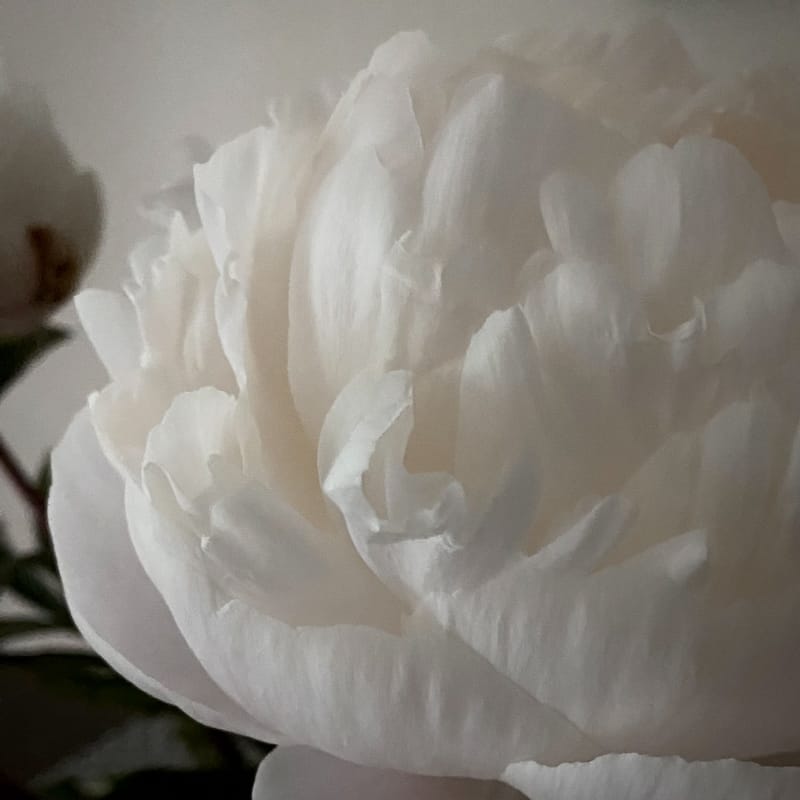
180
1.
It’s been 180 days since the last time I wrote. To you. Maybe at all?
A lot has happened since then.
Each of my kids had a birthday. One started high school. Another started middle school.
I got shingles. I recovered.
I made a silly TikTok video, and 12,000 people liked it enough to follow me.
I spent several dozen hours spread out over six months feeling very anxious about having so many followers.
I interviewed two photographers and three poets.
I watched 16 seasons of various anime.
I got on the dating apps.
I got off the dating apps.
I made some new friends. I spent some time with old friends.
I read 9 books.
I met a woman and fell in love.
I went to sleep on 180 nights and woke up on 180 mornings. Or, sometimes, I woke in the afternoon. I got out of bed 180 times.
2.
I signed my divorce papers this morning.
It’s been 561 days since our separation began. It will be another few months before everything is final. But, for me, at least, there’s nothing more to do but wait.
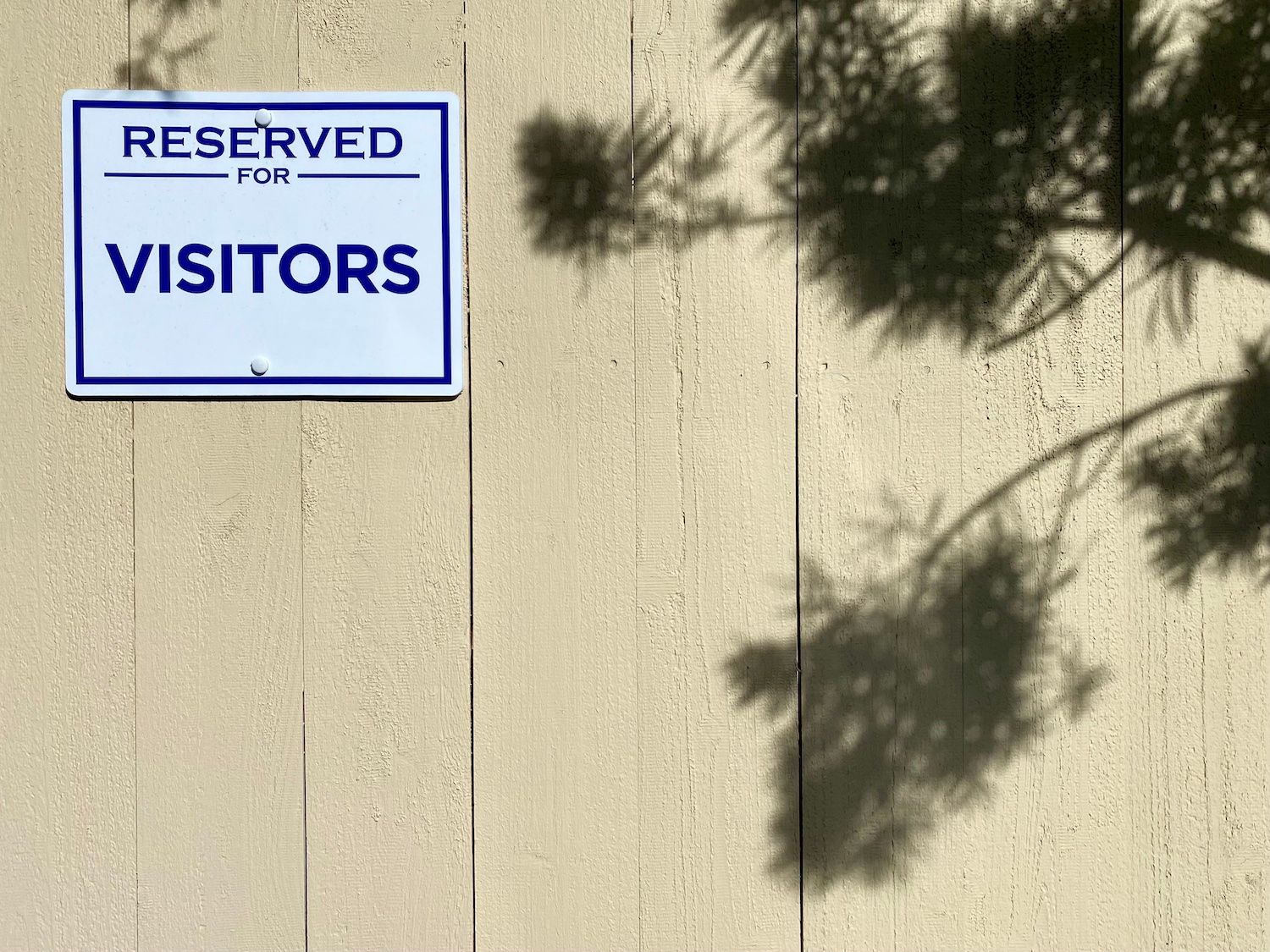
Afterwards, after smiling and thanking the paralegal and exiting the conference room, I sat in my car for a few moments in the parking lot. The shadow on the fence in front of me caught my attention, as did the plastic sign it fell beside. The mind wants to see symbols and signs, make meaning. We are just visiting. This is temporary.
Things are better for me than they were before. I am happier now than I have been in years. I wouldn’t go back to my old life if I could. But I still miss it a little.
I’m not sure what I expected to feel. One of my best friends cried after signing her divorce papers. I mostly just felt tired and heavy, though since I had stayed up to read the night before, it was hard to ascribe that to the moment.
My girlfriend and I have been dating for 97 days. For 97 days, I’ve been learning what it means to be in a relationship in which I am not afraid. To share time with a person who desires me as much as I desire her. To delight in someone who also delights in me, exactly as I am.
I still have trouble believing, sometimes, that this is how my life has turned out. But I’m okay.
3.
I wonder how you are, though. We don’t talk a lot, you and I. What are you dreaming about right now? What have you struggled with? What made you happy most recently? What mattered to you today? What are you proud of? What do you wish could have turned out differently?
It’s none of my business, really. But I do wonder. I know you’re doing your best, wherever you are. I am, too.
New KTCO: Amanda Marchand
I had the pleasure of being in the audience for Amanda Marchand’s Second Sight lecture at this year’s Medium Festival, back in May. I was, of course, immediately struck by the simple and elegant compositions of her lumen prints (an example of which is shown above—her image “Roseate Tern”), but it was her process that truly fascinated me. I’m always interested in the separation between what can and can’t be seen in a photographic image, and in her Lumen Notebook series, Amanda mostly uses books to create the photograms. And not just any books, but specific books that have specific meaning to her. It turns out that both she and I have a fascination with the way that language and image interact, so it was a real treat getting to pick her brain for this episode.
Here are some handy links for the episode:
In the course of our conversation, we mentioned several of Amanda’s books, which you can purchase:
- The World is Astonishing with You in It (2021, self-published, contact artist to purchase: amandabethmarchand@gmail.com)
- Nothing Will Ever Be the Same Again (2019, Datz Press)
- Night Garden (2015, Datz Press)
Some additional resources you may enjoy in conjunction with today’s episode:
- Amanda’s Medium Festival lecture is a great overview of her work and process.
Breath(e)
